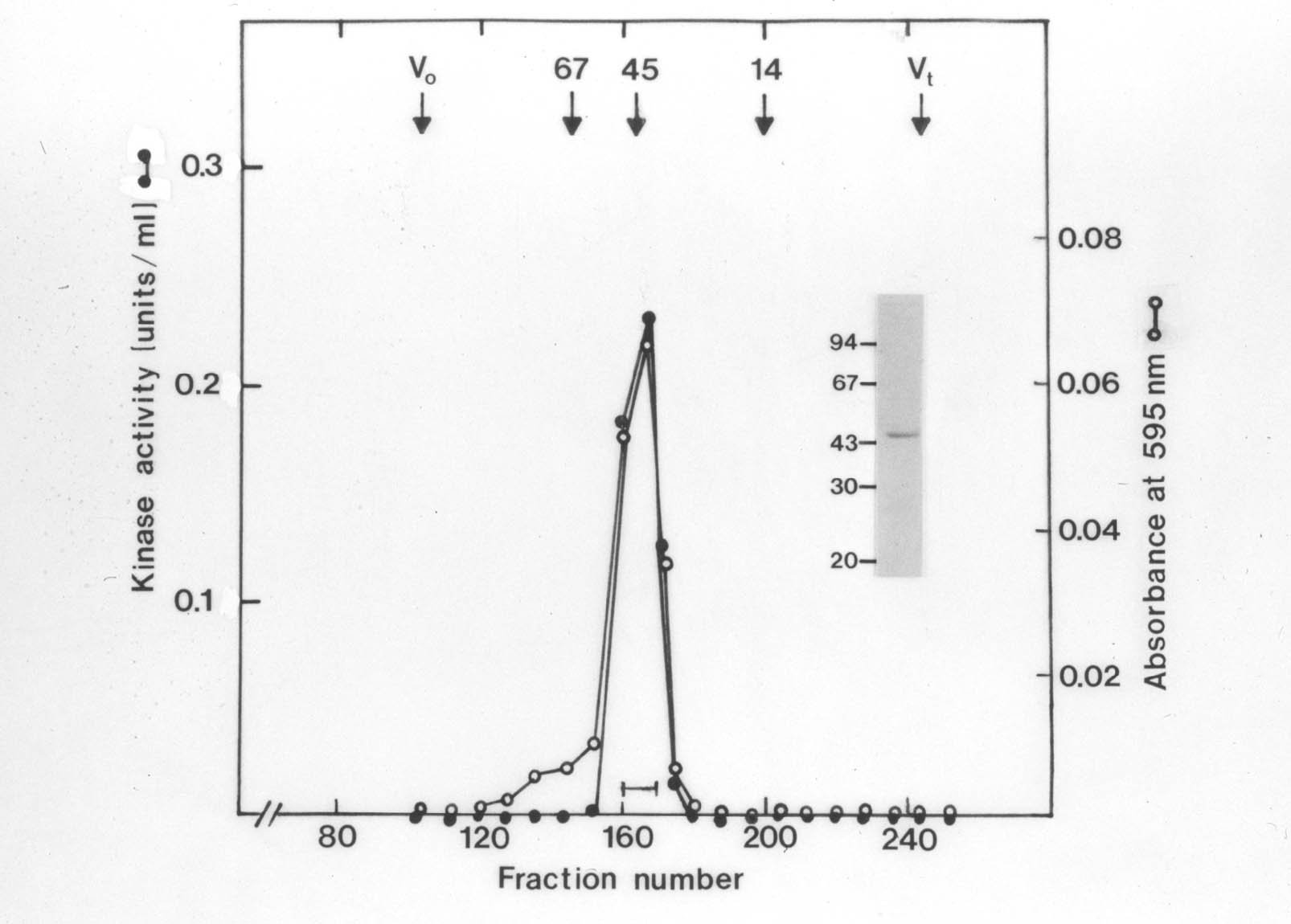cPK
Source: Bovine kidney.
Purity: > 90% by SDS-PAGE, apparent Mr ~ 45-kDa.

Supplied: 0.1 μg (~ 2 units) in 50 μl 50 mM Tris-HCl pH 7.0 buffer containing 14 mM β-mercaptoethanol, 1 mM benzamidine, 0.1 mM phenylmethanesulfonyl fluoride, 1 mM EDTA and 50% glycerol.
Activity: ~ 17,000 units/mg with protamine sulfate as substrate. One unit is the amount of cPK that incorporates 1 nmol of phosphate into protamine sulfate per min. Maintain preparations in aliquots at -70° C. Avoid repeated thawing.
Synonyms: Cytosolic Protamine Kinase; cPK
Background: Cytosolic Protamine Kinase (cPK) is a distinct insulin-stimulated protein kinase which phosphorylates eIF4E (GLO118-005, GLO118-015, GLO118-030), hnRNP protein A1, and numerous other cellular proteins. cPK is itself regulated by reversible phosphorylation. Phosphorylation by Myelin Basic Protein Kinases MBPK-1 (GLO113-100) and MBPK-2 (GLO114-100) activates cPK. Dephosphorylation by protein phosphatases PP2A1 (GLO130-001, GLO130-005), PP2A2 (GLO131-001, GLO131-005) and PP2AC (GLO132-001) inactivates the kinase.
